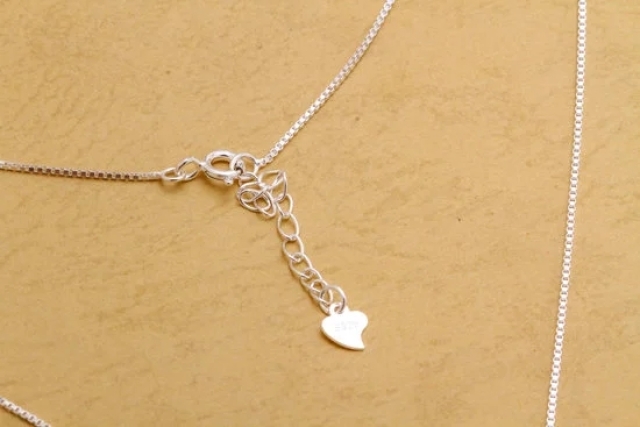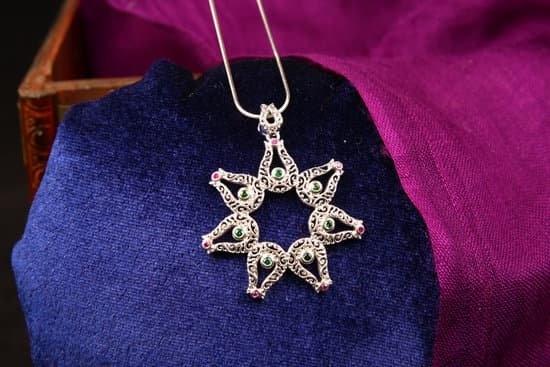Jewelry raw material manufacturers produce materials for use in jewelry pieces. These materials can include precious metals, gems, stones, wood, plastic, and other components used in the creation of items such as rings, necklaces, earrings and pendants. They are a key part of the jewelry industry and employ a wide range of skilled artisans to create stunning pieces for consumers.
The process begins with jewelry raw material manufacturers selecting the appropriate components to create their products. This typically involves researching their consumer base to determine which styles and types will be desired by those individuals. Once this research is done they source materials from suppliers or utilize those already on hand. As sturdy and beautiful jewelry is vital for customer satisfaction they are extra vigilant when it comes to quality control throughout each stage of production.
Materials that have been selected can then either be mixed with other elements or made available in its raw form dependant on what effect it seeks to achieve in the final item design. Metals such as gold or silver typically come already melted down but additional alloys must be added if an increased strength is wanted in exchange for a lesser level of purity.
Genuine stones sourced from far off lands are also frequently added into one off works through partner dealerships if mass produced adornments are not being created.
Once crafted together manufacturers skillfully apply techniques such as polishing, engraving or etching to enhance light reflection or bring out hidden designs within each creation’s makeup before these pieces of valuable jewelry become ready for distribution.
Jewelry raw material manufacturers play a major role in helping fashion jewelers develop intricate items that turn heads everywhere they go; as one could imagine without sourcing these components first designers would never have access to their much loved mediums for making amazing pieces of wearable art possible.
Types of Jewelry Raw Materials Manufacturers
One of the most important aspects of getting good quality jewelry is understanding who manufactures the raw materials used in its creation. There are two types of jewelry raw material manufacturers, domestic and international ones.
Domestic jewelry raw material manufacturers typically have a defined geographic region that they mostly work within. This can provide some assurance that the supplier is reliable and easy to do business with since they will be familiar with local laws and consumer needs, as well as any additional regulations particular to their area. An example of this would be a jewelry company based in New York city who focuses on sourcing raw materials from suppliers within the United States.
International jewelry raw material manufacturers often specialize in particular types of an item. They typically are able to offer products from all around the world, allowing for a wide range of choice when it comes to price points and quality.
The downside when dealing with these kinds of suppliers is that communication may not always be as straightforward – any orders placed may take longer time to arrive due to shipping times and customs delays. One example of an international raw material manufacturer would be a factory located in China which specializes in making gold plated silver jewelry components.
It’s important to choose suppliers with care when seeking out quality raw material for your own creations or those you’re selling. Knowing how the different types of manufacturers fit into the equation can help make sure you’re choosing wisely when it comes to sourcing your materials for jewelery works or pieces you want to market or sell online or through stores and boutiques.
Benefits of Working with a Jewelry Raw Material Manufacturer
- Cost: Working with a jewelry raw material manufacturer can help to significantly reduce costs associated with producing jewelry. Many manufacturers offer bulk discounts and can provide fairer pricing for their products than typical retail stores. This helps to keep production costs down, allowing jewelers to make more profit per item.
- Quality: Companies that specialize in producing jewelry raw materials are experts in their field and often produce items of the highest quality. These raw materials must be able to withstand the rigors of being crafted into beautiful pieces of jewelry and must hold up well over time. Jewelry raw material manufacturers have the resources and knowledge to ensure their products are made from the best possible ingredients.
- Variety: The selection of available materials is constantly changing, as new technologies and techniques are developed by jewelry raw material manufacturers. Suppliers can keep up with current trends and offer customers a wider range of choices when it comes to selecting components for their jewelry designs.
- Prototype Development: Jewelry raw material manufacturers can help jewelers create prototypes of their designs, saving them costly delays in finding out if a design really works. They also come with expertise on specific materials that can provide valuable guidance during this process.
- Design Support: Along with providing prototype development services, many suppliers also offer full design support for jewelers looking to create custom pieces. They may be able to devise alternate methods of manufacture or suggest solutions when traditional techniques fall short.
- Research & Development: Working with a reputable vendor allows access to cutting-edge research and development processes. Such vendors employ highly skilled professionals whose sole job is to explore new idea related to creating better quality jewelry components at reasonable prices while improving efficiencies.
Different Types of Jewelry Production Techniques
Jewelry production has evolved dramatically over time. In the past, most jewelry was crafted using traditional goldsmith techniques like hammering, filing, and soldering. Today, advanced technology allows jewelry makers to use a vast array of methods in order to design and manufacture unique pieces.
Generally speaking, jewelry raw material manufacturers produce metal alloys suitable for use in goldsmithing and crafting applications. Based on the application requirements, these manufacturers often specialize in either precious or non-precious metals. As such, they provide jewelry makers with high-quality components for producing intricate designs from scratch or by combining individual elements into ready-made components like settings and clasps.
One popular method is wax casting which is used to create fine detailed pieces with impressive precision. In this technique wax is carved into a desired shape then encased in plaster, burned out leaving a hollow cavity which is filled with molten metal under vacuum pressure or centrifugal force that produces uniform wall thicknesses of the cast item when cooled down and removed from the mould cavity.
Furthermore, other common techniques include forging which involves shaping ornate patterns by hammering heated metals; lost-wax die-casting which is an automated method utilizing computer control to accurately cast complex forms; as well as electroforming which allows jewelers replicating shapes precisely using a thin layer of metal deposited onto a mold or template.
Aside from these basic methods, jewelry makers may also employ more complicated techniques like Kelen eXtreme Technology (KXT), 3D printing technologies, along with laser welding and engraving for more customized pieces. Generally speaking, KXT takes advantage of proprietary technology and ultrafast lasers that cut through even the toughest materials while 3D printing uses data created through CAD software to render perfect prototypes so jewelers don’t have to spend time hand polishing rough edges of small jewelry parts.
On the other hand, laser welding provides stronger joints than those obtainable via traditional soldering while laser engraving enables personalized decorations on any surface without incurring extreme costs normally associated with hand engraving methods.
Cost Factors for Jewelry Raw Material Manufacturers
Purchasing jewelry raw materials can be a daunting task for the average consumer. Knowing how to go about finding a reputable source, and then understanding what factors comprise the cost of the item are all important considerations. In this article, we’ll take a look at some of the main cost factors that go into producing jewelry raw materials so readers can make an informed decision when deciding on a manufacturer to purchase from.
- Raw Material Cost: Raw material costs make up the largest portion of any product’s cost and jewelry is no exception. Factors such as market price for gold or silver, availability of rare metals and gemstones, and even shipping charges on bulk orders all figure in when determining raw material costs.
- Labor Costs: It takes skilled artisans and professionals to craft intricate pieces of jewelry. As such, labor costs account for a large part of any finished item’s price tag.
- Overhead Costs: Like any other business, jewelers must pay overhead costs including rent, insurance, and utilities.
- Marketing & Advertising Expenses: Jewelry manufacturers have to invest in marketing campaigns in order to reach potential customers. This includes advertising in print media or online platforms and PR agencies.
Understanding these key factors can help consumers get a better sense of just how much they are paying for their items. Knowing exactly what goes into producing each piece offers valuable insight when shopping around for an ideal product and manufacturer. Ultimately, it is up to consumers to determine which brands offer the most competitive pricing by comparing raw material costs, labor costs, overhead expenses, and marketing fees among their competitors.
Factors to Consider When Choosing a Jewelry Raw Material Manufacturer
When it comes to choosing a jewelry raw material manufacturer, there are some important factors to consider. Every production process is different and must take into account the quality of materials that will be used, customer preferences, market trends and seller feedback.
Pros/Cons of Cost
- Pros: A lower cost of production can result in higher savings for resellers or retail consumers.
- Cons: Low-cost manufacturers may not provide as high a quality in their products as more expensive competitors.
Pros/Cons of Quality
- Pros: Higher-quality jewelry materials will create long-lasting, aesthetically attractive pieces of jewelry.
- />Cons: Some manufacturers charge disparities between price and quality; therefore, sellers should not opt for more expensive materials if they do not match with consumer needs.
Pros/Cons of Customization Options
- > Pros: For those who prefer personalized pieces or unique designs for their jewelry items, customizing options are available from certain manufacturers.
- < strong > Cons: The process for creating customized items may require additional time and higher costs compared to standard products
Common Challenges Faced by Jewelry Raw Material Manufacturers
Jewelry raw material manufacturers face a variety of challenges to successfully produce their product. The difficulty lies in sourcing quality materials, such as metals, stones, and diamonds. Additionally, the intricate details involved in the production process can be extremely labor-intensive and costly.
To ensure high-quality works, manufacturers must remain attentive to the constantly changing market. The jewelry industry is hugely influenced by both cultural trends as well as economic movements, and suppliers must stay informed if they are to remain competitive. This goes hand-in-hand with keeping production costs low in order to remain profitable.
In addition to external pressures from the competitive market and economic influences, there is also the challenge of reducing environmental harm caused by pollution created during production. Jewelry manufacturing requires the use of equipment that emits harmful toxins into the air and water, which has a detrimental effect on our planet’s health when not managed properly.
- Sourcing Quality Materials: Jewelers must source metals, gemstones and diamonds of suitable quality for their products.
- Remotely Monitoring The Market: Manufacturers need to keep up with changing trends within the Jewelry industry in order to remain competitive.
- Reducing Environmental Impact: The use of industrial equipment within production can lead to environmental damage if it is not managed correctly.
Conclusion
Jewelry raw material manufacturers play an important role in the production of jewelry pieces. They provide the basic components necessary to create a beautiful finished product.
It is essential for customers to check the quality, standards and certifications that their chosen manufacturer has adopted, as it will ensure that the final piece is of high quality and meets all safety standards. This will help protect consumers from buying hazardous or low-quality products while also helping to safeguard them from unethical practices.
Choosing a reliable jewelry raw material manufacturer is essential for any customer, large or small. First, customers should take time to research their options by looking at online reviews and ratings. They should read up on the materials used by different suppliers and inquire about any certifications they may have obtained.
Additionally, they should consider asking questions about where the supplier sources its materials from, as well as what environmental impact those source have. It’s also important to be aware of any additional costs associated with ordering from certain suppliers, such as extra shipping fees or minimum orders that might be required.
Customers should do their due diligence to make sure they are getting a good deal for their money and not getting taken advantage of by dishonest manufacturers who might overcharge them for substandard goods.
Finally, it’s crucial for customers to understand and trust the jewelry raw material manufacturer they choose in order to get the best possible product at an attractive price point. Customers should ask questions openly during their research process and pay close attention to detail in order guarantee that they find a reputable wholesale partner with whom they can build long-term relationships with beneficial terms for both parties going forward.
By taking all these extra steps when selecting your jewelry raw material manufacturer, you can rest assured knowing you are getting a quality product at an affordable price.

Welcome to my jewelry blog! My name is Sarah and I am the owner of this blog.
I love making jewelry and sharing my creations with others.
So whether you’re someone who loves wearing jewelry yourself or simply enjoys learning about it, be sure to check out my blog for insightful posts on everything related to this exciting topic!





